 I am pleased to announce that Professor Umit Ozkan of the Ohio State University is the recipient of the 2023 Robert Burwell Lectureship in Catalysis, sponsored by Johnson Matthey and administered by the North American Catalysis Society. It is awarded biennially in odd-numbered years. The award consists of a plaque and an honorarium of $5,000, which will be presented at the award banquet at the NAM28 meeting. An additional $4,500 is available to cover travelling expenses in North America. The awardee is expected to lecture at many of the local catalysis clubs.
I am pleased to announce that Professor Umit Ozkan of the Ohio State University is the recipient of the 2023 Robert Burwell Lectureship in Catalysis, sponsored by Johnson Matthey and administered by the North American Catalysis Society. It is awarded biennially in odd-numbered years. The award consists of a plaque and an honorarium of $5,000, which will be presented at the award banquet at the NAM28 meeting. An additional $4,500 is available to cover travelling expenses in North America. The awardee is expected to lecture at many of the local catalysis clubs.
The Robert Burwell Lectureship in Catalysis is given in recognition of substantial contributions to one or more areas in the field of catalysis with emphasis on discovery and understanding of catalytic phenomena, catalytic reaction mechanisms and identification and description of catalytic sites and species. The awardee is selected on the basis of his/her contributions to the catalytic literature and the current timeliness of these research contributions. The recipient may be invited to (1) visit and lecture to each of the affiliated Clubs/Societies with which mutually satisfactory arrangements can be made and (2) prepare a review paper(s) for publication covering these lectures. Publication will be in an appropriate periodical.
Professor Umit Ozkan is recognized for her pioneering work that bridged the heterogeneous catalysis and electrocatalysis fields. Her group was the first to show that nitrogen-doped carbon nanostructures (CNx) had promising oxygen reduction reaction (ORR) activity in acidic medium. Combining spectroscopy techniques, metal-free synthesis methods, and probe molecules, they were able to identify the active sites and provide a mechanistic understanding of the ORR. Recently, her group has also been exploring the use of CNx materials as oxygen depolarized cathode electrodes as well as in bromine evolution reactions. Ozkan also expanded her work to mid-temperature electrocatalysis in solid oxide electrolytic cells for applications such as oxidative dehydrogenation of lower alkanes or oxidative coupling of methane as well as co-electrolysis of CO2 and H2O on perovskites. More recently, they have been working on mid-temperature electrocatalytic NH3 production from N2 and H2O, providing a route for distributed NH3 production as an alternative to the Haber-Bosch process. Dr. Ozkan’s contributions to heterogeneous catalysis include studies in oxidation catalysis, environmental catalysis, hydrogenation and hydrogenolysis reactions as well as reforming reactions. In all of these studies, her focus has been understanding the nature of active sites and tailoring the surface properties to achieve desired catalytic functions.
Jingguang Chen
President, North American Catalysis Society
 I am pleased to announce that Professor Johannes Lercher of TU München and PNNL is the recipient of the 2023 Michel Boudart Award for the Advancement of Catalysis. The Award is sponsored by the Haldor Topsøe Company, and is administered jointly by the North American Catalysis Society and the European Federation of Catalysis Societies. It is awarded biennially in odd-numbered years. Professor Lercher will give plenary lectures at the meetings of the North American Catalysis Society (NAM) and the European Federation of Catalysis Societies (EuropaCat). The award consists of a plaque and a prize of $6,000. The plaque will be presented during the closing banquet ceremonies at the 2023 North American Meeting of the Catalysis Society (NAM28 in Providence).
I am pleased to announce that Professor Johannes Lercher of TU München and PNNL is the recipient of the 2023 Michel Boudart Award for the Advancement of Catalysis. The Award is sponsored by the Haldor Topsøe Company, and is administered jointly by the North American Catalysis Society and the European Federation of Catalysis Societies. It is awarded biennially in odd-numbered years. Professor Lercher will give plenary lectures at the meetings of the North American Catalysis Society (NAM) and the European Federation of Catalysis Societies (EuropaCat). The award consists of a plaque and a prize of $6,000. The plaque will be presented during the closing banquet ceremonies at the 2023 North American Meeting of the Catalysis Society (NAM28 in Providence).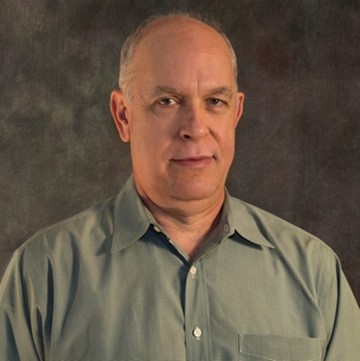
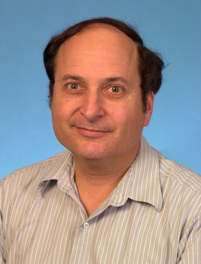
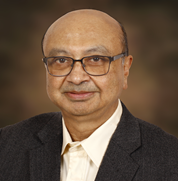 I am pleased to announce that Dr. Sourav Sengupta of DuPont is the recipient of the 2022 F. G. Ciapetta Lectureship in Catalysis. The award is administered by the North American Catalysis Society and sponsored by the W. R. Grace
I am pleased to announce that Dr. Sourav Sengupta of DuPont is the recipient of the 2022 F. G. Ciapetta Lectureship in Catalysis. The award is administered by the North American Catalysis Society and sponsored by the W. R. Grace 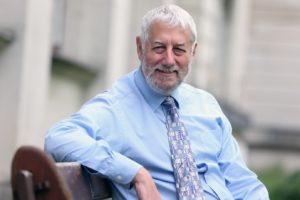
 I am pleased to announce that Professor Manos Mavrikakis of the University of Wisconsin is the recipient of the 2021 Robert Burwell Lectureship in Catalysis, sponsored by Johnson Matthey and administered by the North American Catalysis Society. It is awarded biennially in odd-numbered years. The award consists of a plaque and an honorarium of $5,000, which will be presented at the award banquet at the NAM27 meeting. An additional $4,500 is available to cover travelling expenses in North America. The awardee is expected to lecture at many of the local catalysis clubs.
I am pleased to announce that Professor Manos Mavrikakis of the University of Wisconsin is the recipient of the 2021 Robert Burwell Lectureship in Catalysis, sponsored by Johnson Matthey and administered by the North American Catalysis Society. It is awarded biennially in odd-numbered years. The award consists of a plaque and an honorarium of $5,000, which will be presented at the award banquet at the NAM27 meeting. An additional $4,500 is available to cover travelling expenses in North America. The awardee is expected to lecture at many of the local catalysis clubs.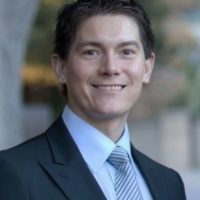
 I am pleased to announce the winners of the 2021–2022 the Paul H. Emmett Award in Fundamental Catalysis. This award recognizes and encourages individual contributions in the field of catalysis with emphasis on discovery and understanding of catalytic phenomena, proposal of catalytic reaction mechanisms and identification of and description of catalytic sites and species. The award winner must not have turned 46 on April 1st of the award year. The award consists of a plaque and an honorarium of $5,000. The Paul H. Emmett Award in Fundamental Catalysis is sponsored by the W.R. Grace
I am pleased to announce the winners of the 2021–2022 the Paul H. Emmett Award in Fundamental Catalysis. This award recognizes and encourages individual contributions in the field of catalysis with emphasis on discovery and understanding of catalytic phenomena, proposal of catalytic reaction mechanisms and identification of and description of catalytic sites and species. The award winner must not have turned 46 on April 1st of the award year. The award consists of a plaque and an honorarium of $5,000. The Paul H. Emmett Award in Fundamental Catalysis is sponsored by the W.R. Grace 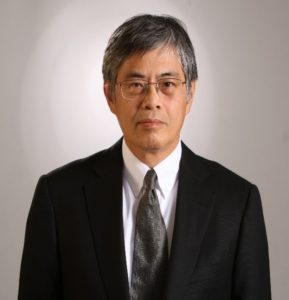 I am pleased to announce that Dr. Deng-Yang (DY) Jan of the Honeywell UOP is the recipient of the 2021 Eugene J. Houdry Award in Applied Catalysis. This award is sponsored by Clariant and is administered by the North American Catalysis Society. The award consists of a plaque and a prize of $5,000. The plaque will be presented during the closing banquet ceremonies at the 2021 North American Meeting of the Catalysis Society (NAM27 in New York City).
I am pleased to announce that Dr. Deng-Yang (DY) Jan of the Honeywell UOP is the recipient of the 2021 Eugene J. Houdry Award in Applied Catalysis. This award is sponsored by Clariant and is administered by the North American Catalysis Society. The award consists of a plaque and a prize of $5,000. The plaque will be presented during the closing banquet ceremonies at the 2021 North American Meeting of the Catalysis Society (NAM27 in New York City). 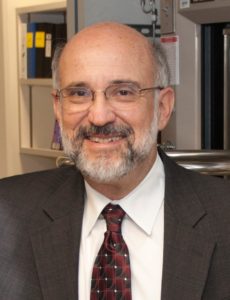 I am pleased to announce that Professor Enrique Iglesia of the University of California at Berkeley and Pacific Northwest National Laboratory is the recipient of the 2021 NACS Award for Distinguished Service in the Advancement of Catalysis. This award is jointly sponsored by Clariant and ExxonMobil Research and Engineering and is administered by the North American Catalysis Society. The award consists of a plaque and a prize of $5,000. The plaque will be presented during the closing banquet ceremonies at the 2021 North American Meeting of the Catalysis Society (NAM27 in New York City).
I am pleased to announce that Professor Enrique Iglesia of the University of California at Berkeley and Pacific Northwest National Laboratory is the recipient of the 2021 NACS Award for Distinguished Service in the Advancement of Catalysis. This award is jointly sponsored by Clariant and ExxonMobil Research and Engineering and is administered by the North American Catalysis Society. The award consists of a plaque and a prize of $5,000. The plaque will be presented during the closing banquet ceremonies at the 2021 North American Meeting of the Catalysis Society (NAM27 in New York City).